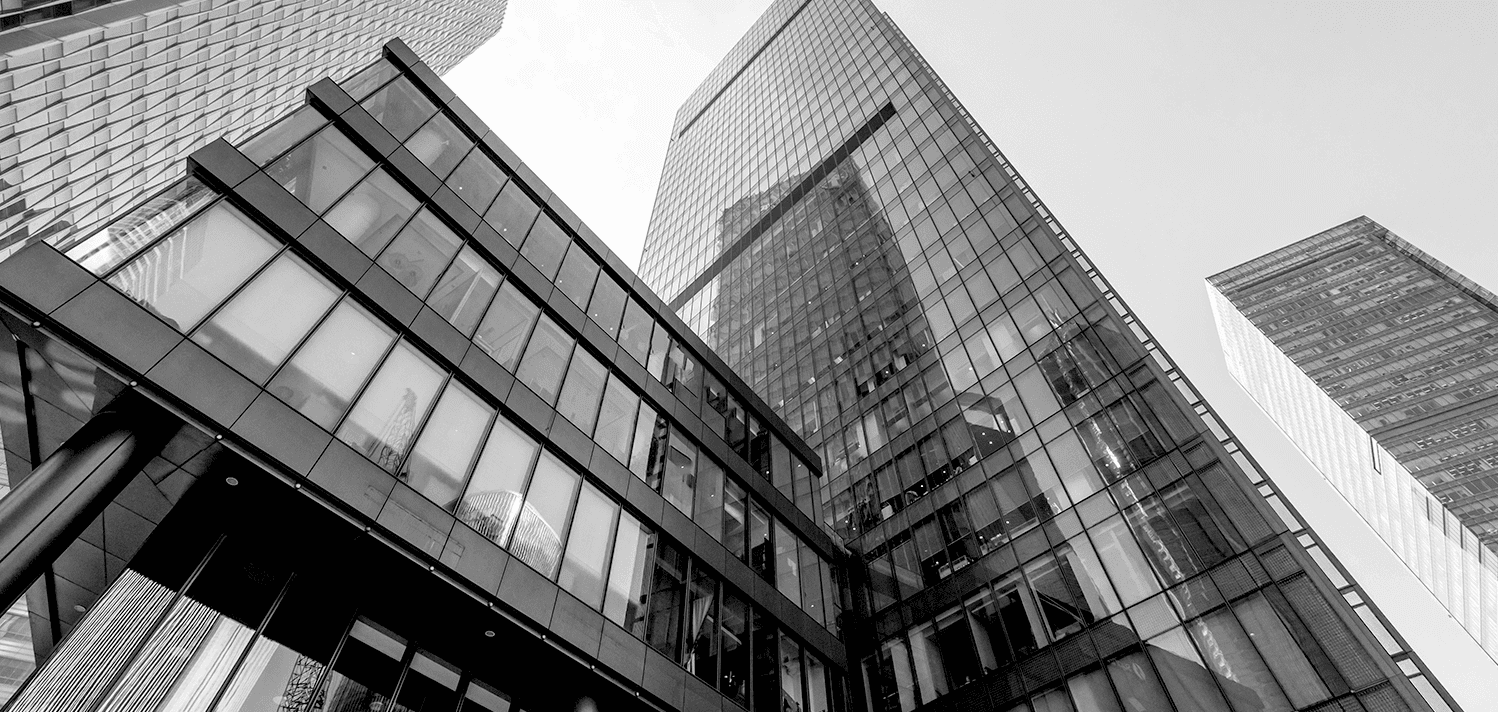How to maintain glass installations in high traffic commercial spaces
- 10 September 2025
- News
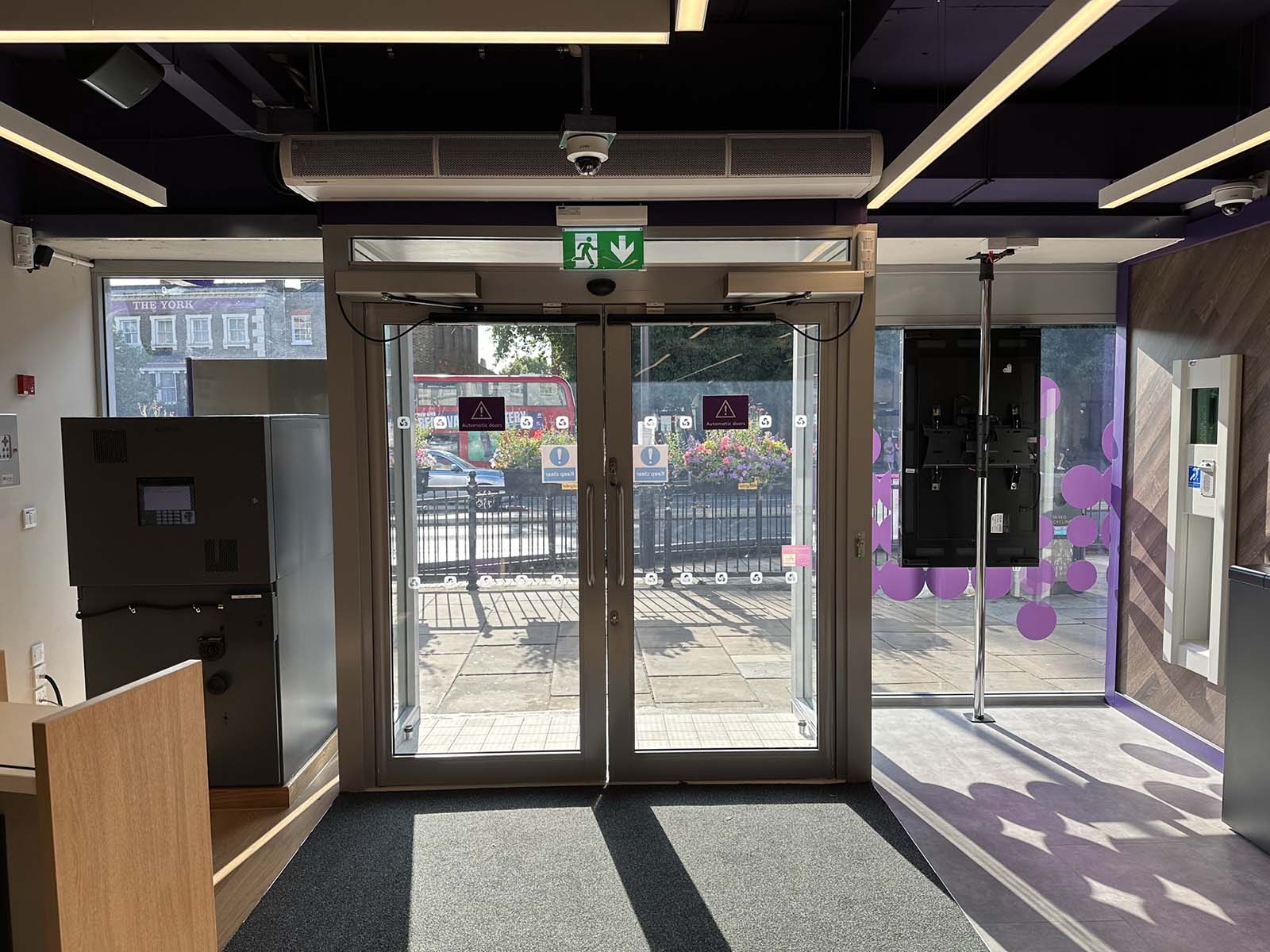
Glass is a defining feature of modern commercial buildings, from expansive storefront windows to office partitions and curtain walls. Its ability to provide natural light, reduce the need for artificial lighting and reinforce a strong brand image makes glass an integral part of commercial design. Yet in high-traffic areas, the longevity of the glass depends on how well it is maintained.
For business owners, developers and contractors, knowing how to maintain glass installations in high traffic commercial spaces is the first step in protecting both the investment and the integrity of the building. Regular maintenance preserves the aesthetic appeal of glass while safeguarding safety standards, energy efficiency and structural integrity.
Why maintenance matters in high traffic commercial spaces
Foot traffic in commercial properties puts significant stress on glass installations. Doors, partitions and storefront glass are subject to frequent use, while large windows and facades are exposed to environmental factors such as heat gain, heat loss and weather conditions. Without proper care, the risk of breakage, scratches or compromised safety features increases.
Well-maintained glass units also support the energy efficiency of the building. Clean, intact panes reduce heat transfer and can help lower energy consumption and energy costs over time.
By addressing maintenance proactively, commercial property owners protect both the longevity of the glass and the comfort of occupants. In high traffic commercial spaces, glass panels should be inspected for damage at least once a month to ensure early detection and prompt repair of any issues that could compromise safety or building performance.
Types of glass commonly used in commercial spaces
Different applications require different types of glass. Understanding these specifications helps determine the right maintenance approach. Common glass products in high-traffic commercial buildings include:
- Safety glass – designed to meet safety requirements and minimise the risk of injury if breakage occurs.
- Toughened or laminated glass – used for storefront windows, glass doors and office partitions to withstand regular impact.
- Insulated glass units (IGUs) – layers of glass separated by spacers, improving energy efficiency and reducing heat loss.
- Triple glazing – suitable for office buildings and large windows where low thermal conductivity is key to energy savings.
- Smart glass – offering flexibility for conference rooms and partitions, adjusting transparency to suit business environments.
Each type of glass demands maintenance tailored to its design, coatings and functionality.
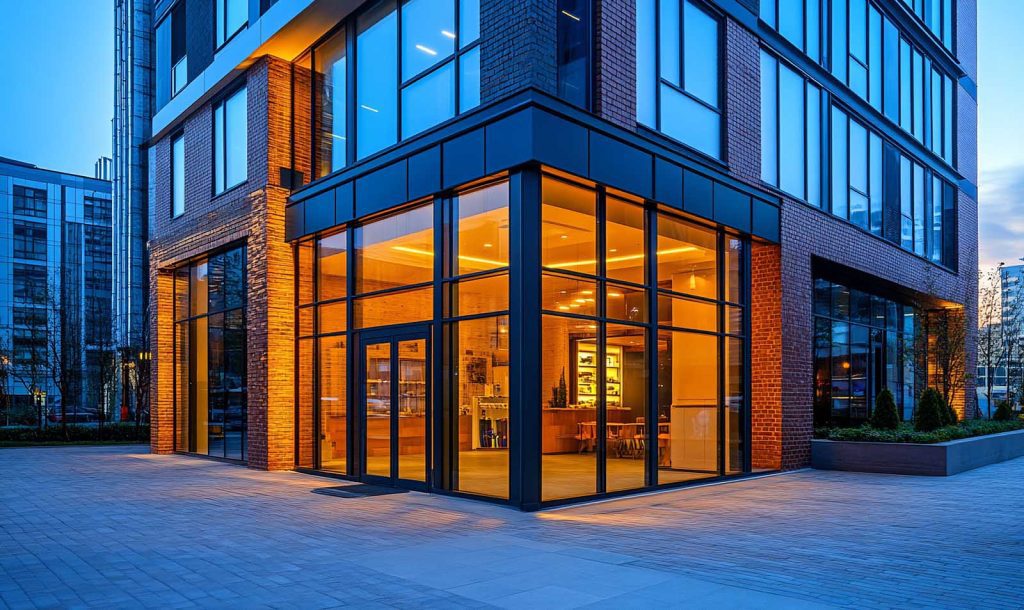
Cleaning practices for long-term performance
Regular cleaning is one of the most effective ways to maintain visual appeal and integrity. In commercial buildings, glass panels, facades and partitions should be cleaned in line with business hours to minimise disruption.
Best practice includes:
- Referring to manufacturer manuals and guides
- Using non-abrasive cleaning solutions to avoid scratches
- Choosing microfibre cloths or squeegees instead of rough sponges
- Paying special attention to edges, frames and interlayers, where dirt and residue can accumulate
- Scheduling professional cleaning for high or complex installations such as curtain walls or glass facades
By keeping surfaces clear, businesses maintain both a modern appearance and the maximum transmission of visible light, which reduces reliance on artificial lighting.
Preventing damage in busy environments
Glass in commercial properties must withstand more than environmental factors. High levels of foot traffic, especially around storefront glass and glass doors, increase the risk of accidental impact. Preventive measures include:
- Applying security films to strengthen panes and improve safety features
- Adding protective barriers near entrances to reduce direct impact from trolleys or carts
- Ensuring partitions and glass units meet the latest industry standards for safety and durability
- Regularly checking seals and interlayers for signs of wear that could affect performance
These steps support both the functionality and longevity of the glass, ensuring compliance with building codes while keeping potential customers and staff safe.
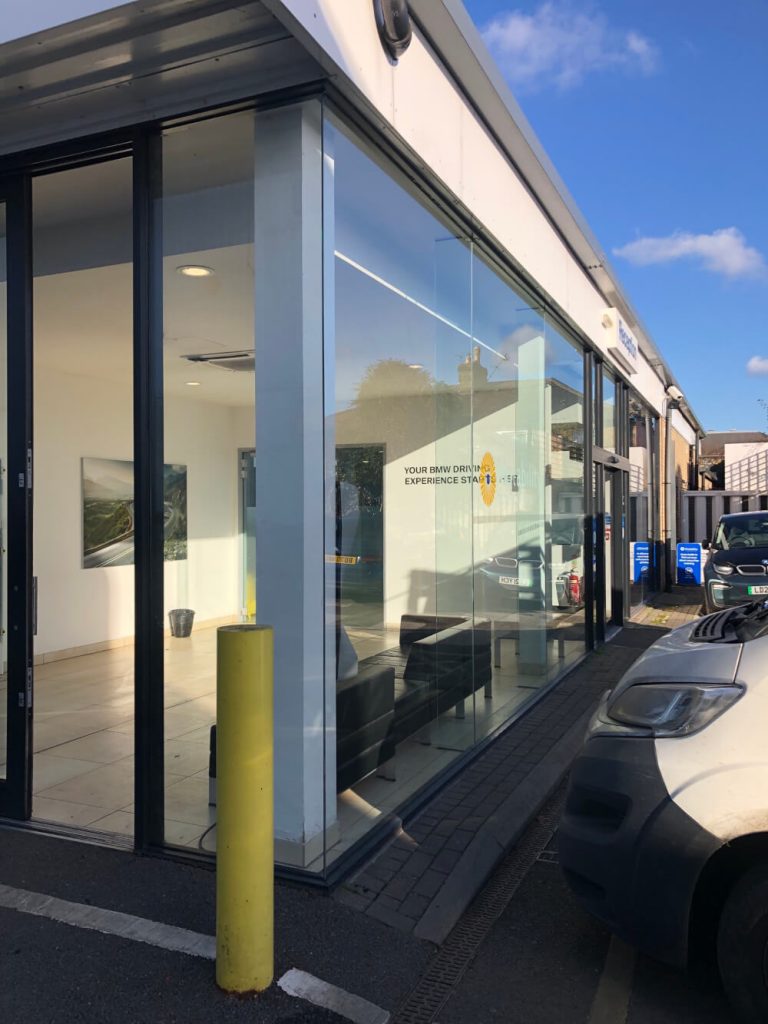
How to reduce energy costs through glass care
Maintaining glass installations is not only about appearance and safety. Clean, undamaged glass supports better energy efficiency by reducing heat transfer. In poorly maintained installations, dirt and surface damage can affect coatings and compromise performance.
For office buildings or retail spaces with large windows, this can lead to unnecessary heating and cooling demands. Proper maintenance helps retain low thermal conductivity, minimising energy consumption and supporting sustainability targets in line with modern commercial design.
What should you do if glass becomes damaged?
Minor scratches and chips can sometimes be repaired, but in many cases window replacement or fitting new glass is the safest option. Damaged glass reduces visual appeal and may also compromise structural integrity and safety standards.
SGC Glass works with commercial property owners to assess specific needs and recommend the right type of glass products for replacements, always ensuring compliance with safety standards and local building codes.
Is maintaining commercial glass really worth the effort?
Yes. While maintenance requires consistent attention, the benefits far outweigh the effort. Well-maintained glass reduces the risk of injury, supports energy savings, protects brand image and ensures compliance with safety standards. In high-traffic commercial spaces, neglecting glass care leads to higher costs and greater long-term risks.
Key takeaways
- Maintenance protects the structural integrity and aesthetic appeal of glass installations.
- Regular cleaning and preventive measures reduce the risk of damage and breakage.
- Glass care supports energy efficiency, reducing energy consumption and energy costs.
- Damaged panes should be repaired or replaced promptly to maintain safety standards.
- Choosing the right type of glass and maintaining it to the latest industry standards secures both performance and visual appeal.
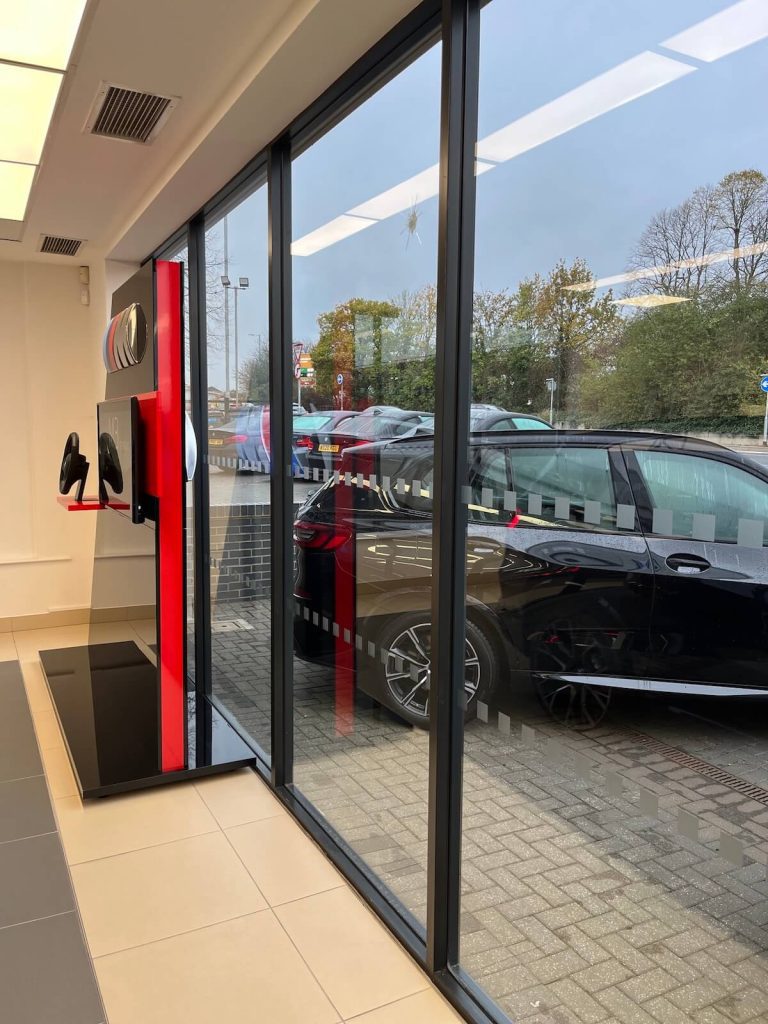
How SGC Glass supports your commercial property
At SGC Glass, we understand that installation is only the beginning. Our commercial glazing services help business owners, contractors and architects achieve modern appearance, functionality and safety across various types of glass applications, from storefront windows to office partitions and large-scale facades.
With years of experience in supplying and fitting durable, high strength glass products, we work closely with clients to ensure both the installation and long-term maintenance of their glass solutions meet the latest industry standards.
Ready to safeguard the longevity of your glass installations?
If you are responsible for a commercial space, keeping glass well maintained should be a top priority. From office buildings and retail units to hospitality venues, proactive care saves costs, protects safety and preserves brand image.
Contact SGC Glass today to discuss maintenance and replacement solutions tailored to your specific needs.

